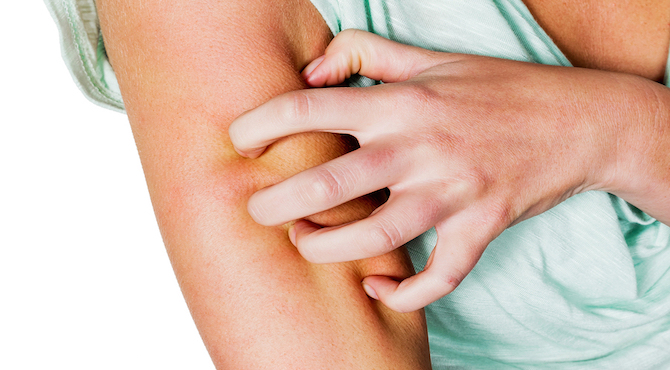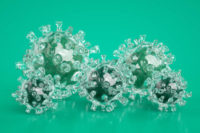August is Psoriasis Awareness Month! It affects three percent of the world’s population. Read below for everything you need to know:
What is psoriasis?
Psoriasis is a noncontagious, chronic immune system condition that affects the skin and sometimes the joints. It occurs when a person’s immune system misses signals, causing the skin cells start to regenerate at an extremely rapid rate. Normal skin cells are created in the lower layers of the skin; they then rise to the surface as they mature and shed within 28 to 30 days. Psoriasis patients’ skin cells form, mature and rise, then are shed in less than a week. The new cells can’t be sloughed off quickly enough; in turn they accumulate on the top of the skin, forming inflamed and scaly patches. The condition affects about 7.5 million Americans.
What are the symptoms of psoriasis?
Symptoms vary by person and by flare up. They can include:
-Plaques of red skin, often covered with loose, silver-colored scales; these lesions may be itchy and painful, and they sometimes crack and bleed;
-Smooth, shiny, tender patches in the folds of the skin;
-Severely painful widespread areas of red rash;
-Yellow, pitted, or loose toenails or fingernails;
-Joint pain, swelling, and stiffness.
What causes psoriasis?
Psoriasis can be very unpredictable and persistent, making every case very different. There is no pattern where psoriasis can pop up. Psoriasis tends to run in families, but it may skip generations. Although psoriasis may be uncomfortable, most outbreaks are relatively harmless. With proper treatment, symptoms normally subside within a few months. Certain factors such as emotional stress and infections can cause an episode of psoriasis. Most doctors believe such external stressors serve as triggers for an inherited defect in immune function.
How does psoriasis affect your life in day-to-day activities?
There is a strong emotional and psychological component to psoriasis, which is a lot more than a cosmetic problem. Many “normal” activities, such as getting one’s hair done, shaking someone’s hand, or wearing a bathing suit can cause uneasy feelings from embarrassment to real anxiety.
Depression, not surprisingly, is a common reaction to a new flare-up of symptoms. Studies have shown that psoriasis sufferers have higher rates of depression than the general population, making it crucial that both patients and their medical professionals pay close attention to the emotional impact this skin disorder can take.
What is the best treatment for psoriasis?
It is important to develop a relationship with a dermatologist you trust, so he or she can determine what is the best medical plan for you. There are many treatments proven effective to combat the skin disorder, including oral and topical medication, and phototherapy. Your doctor may also recommend dietary supplements like fish oil, olive oil, eliminating soaps with dyes and perfumes, using a humidifier in your home, and cutting red meat and fatty foods from your diet.
Donate to help find a cure
The National Psoriasis Foundation is the leader in sponsoring psoriasis and psoriatic arthritis research. In addition to giving millions of dollars in grants to fund innovative projects, they serve as the center for psoriatic research activities, teaming up with scientists, medical professionals, industry and the federal government. Click HERE to donate now.
Russak Dermatology offers a free skin-cancer screening to all members of the DASHA® community.
DASHA® wellness & spa is a luxury lifestyle brand and New York City-based wellness center created to offer a truly holistic approach to wellness. To learn more, visit dashawellness.com.






